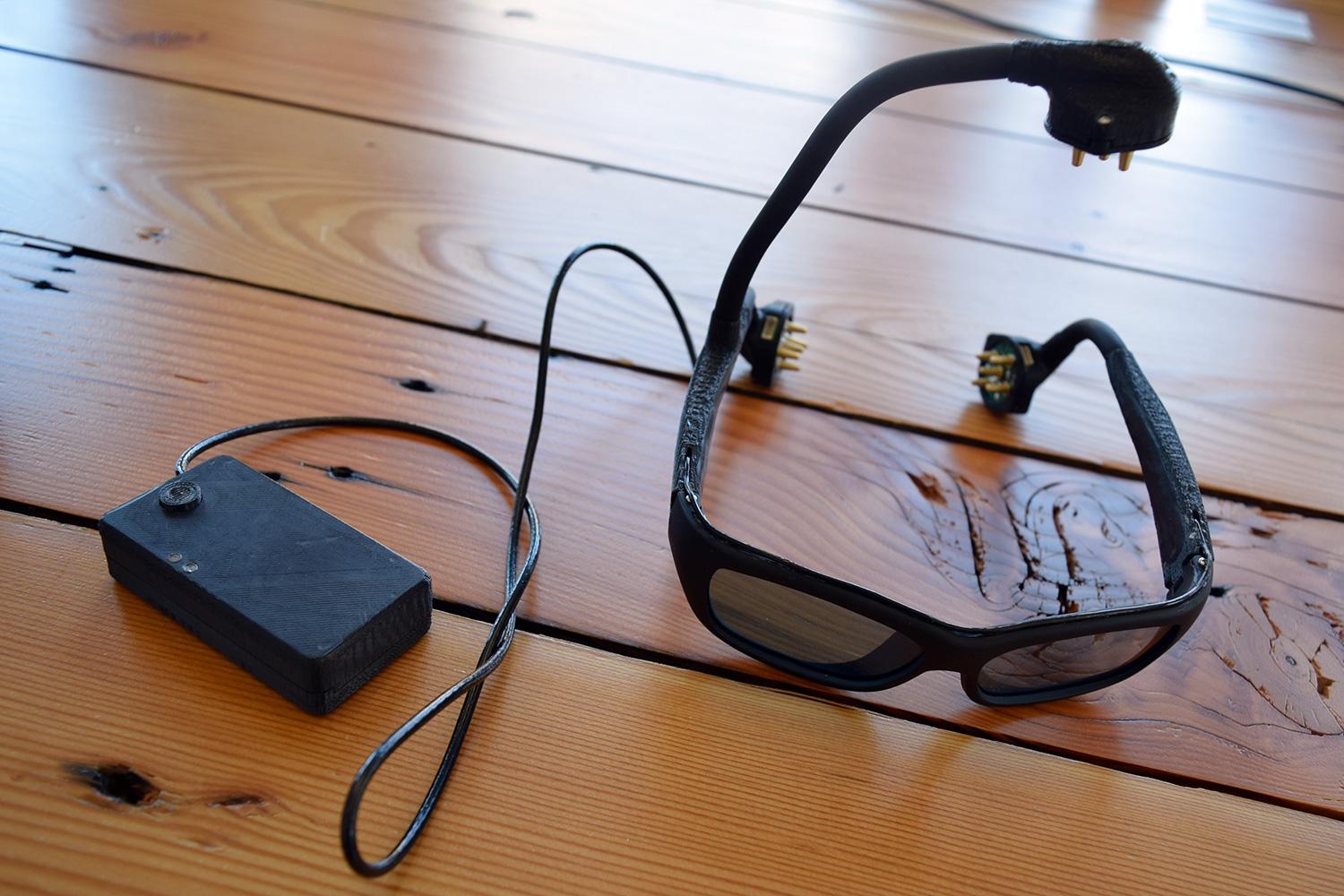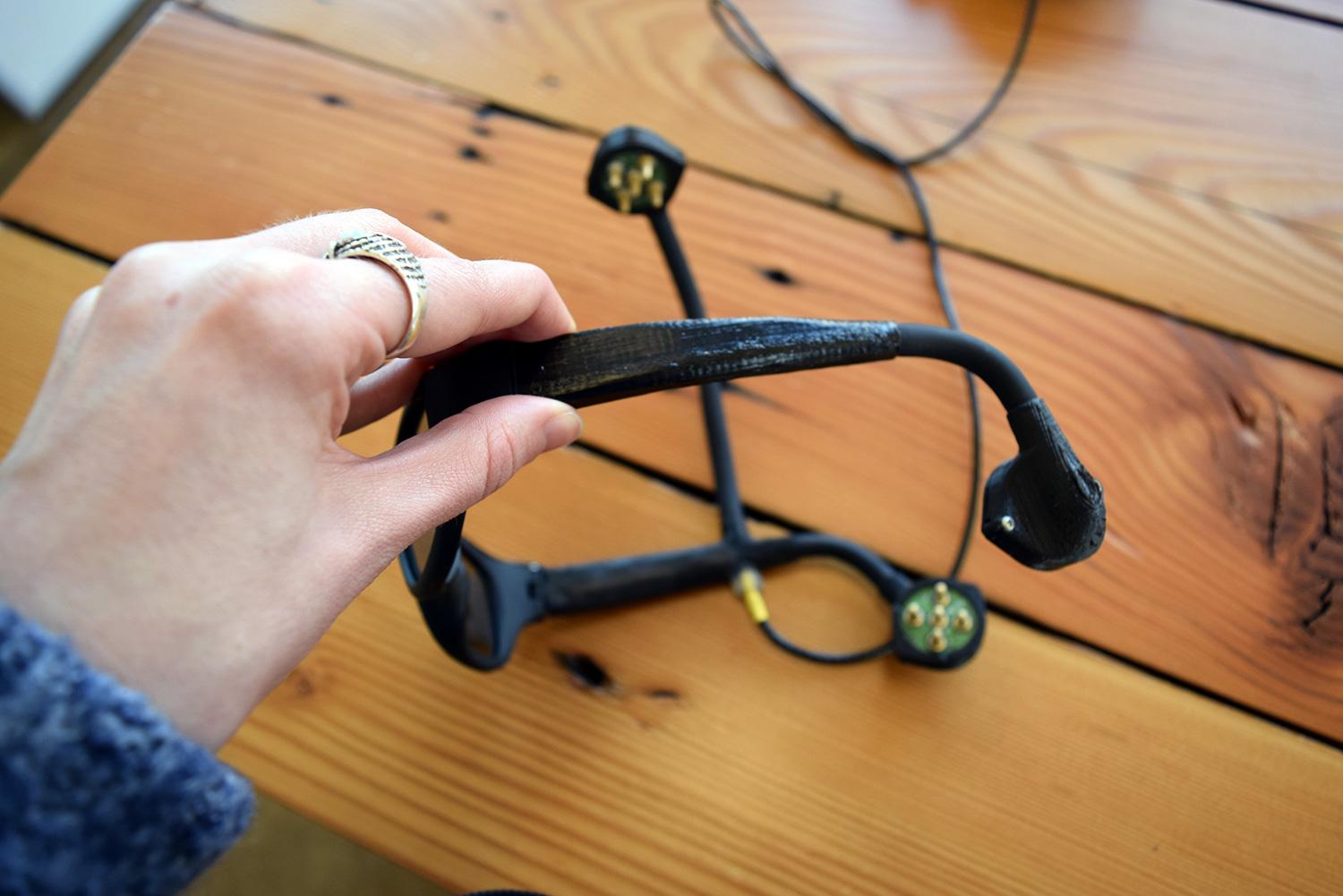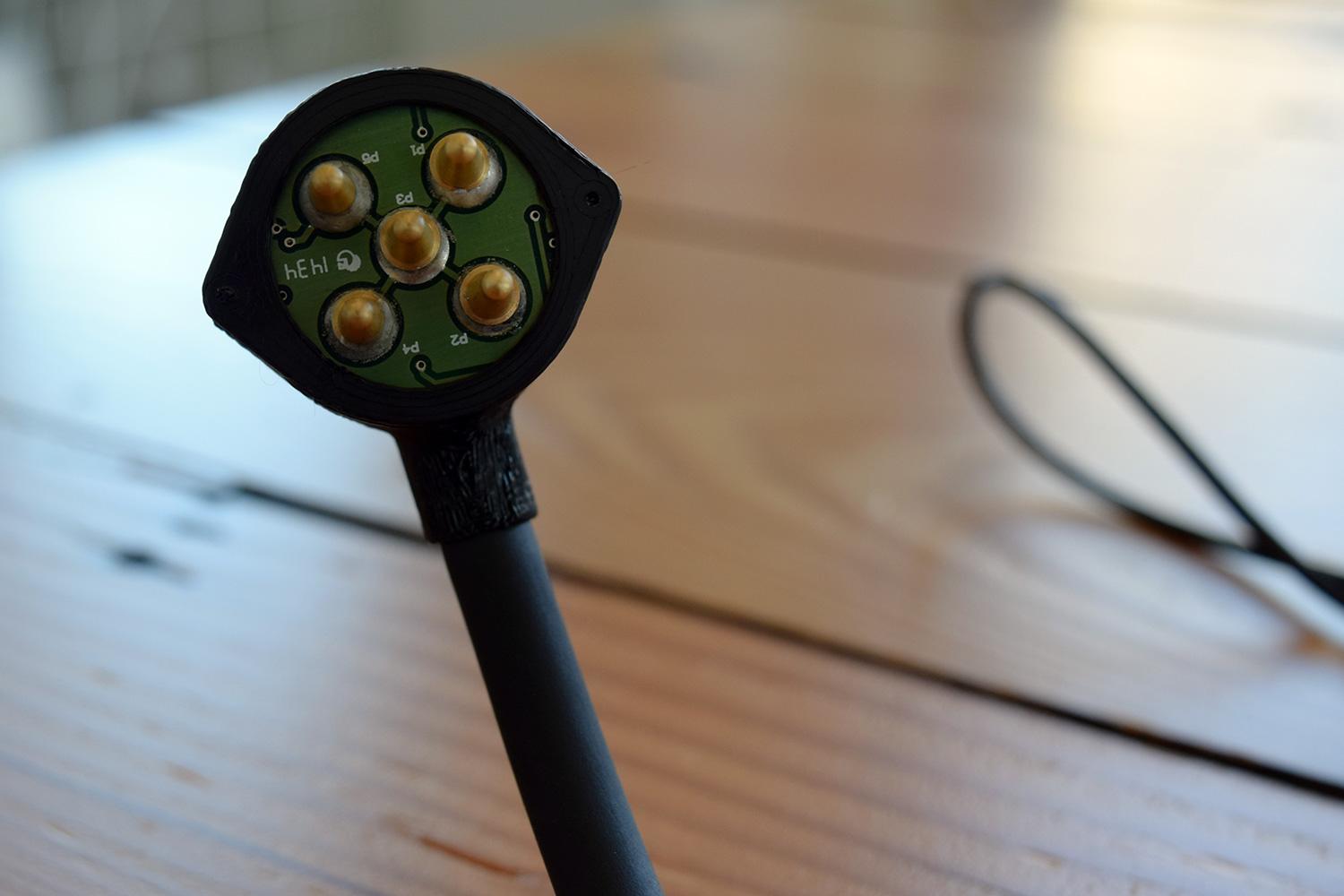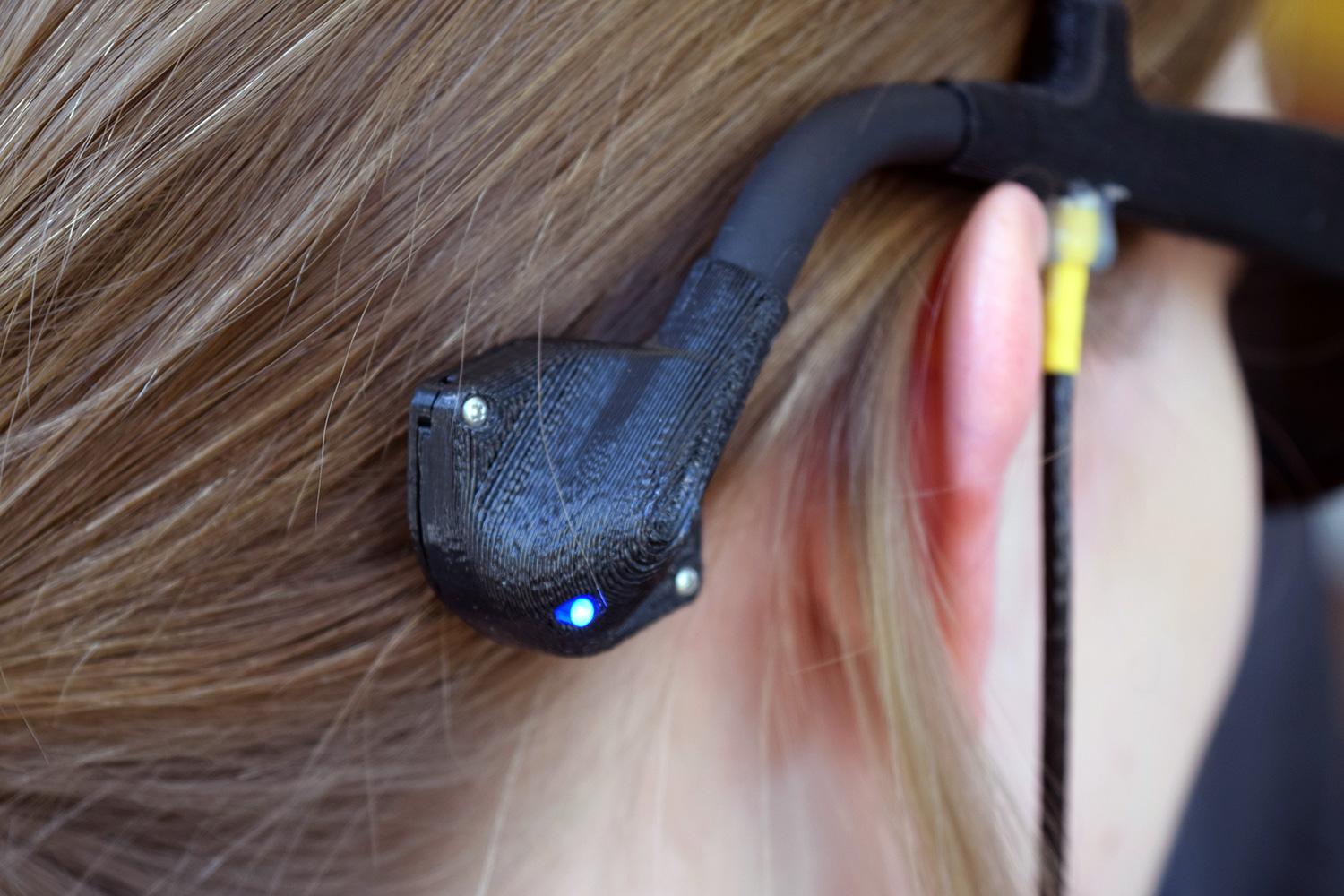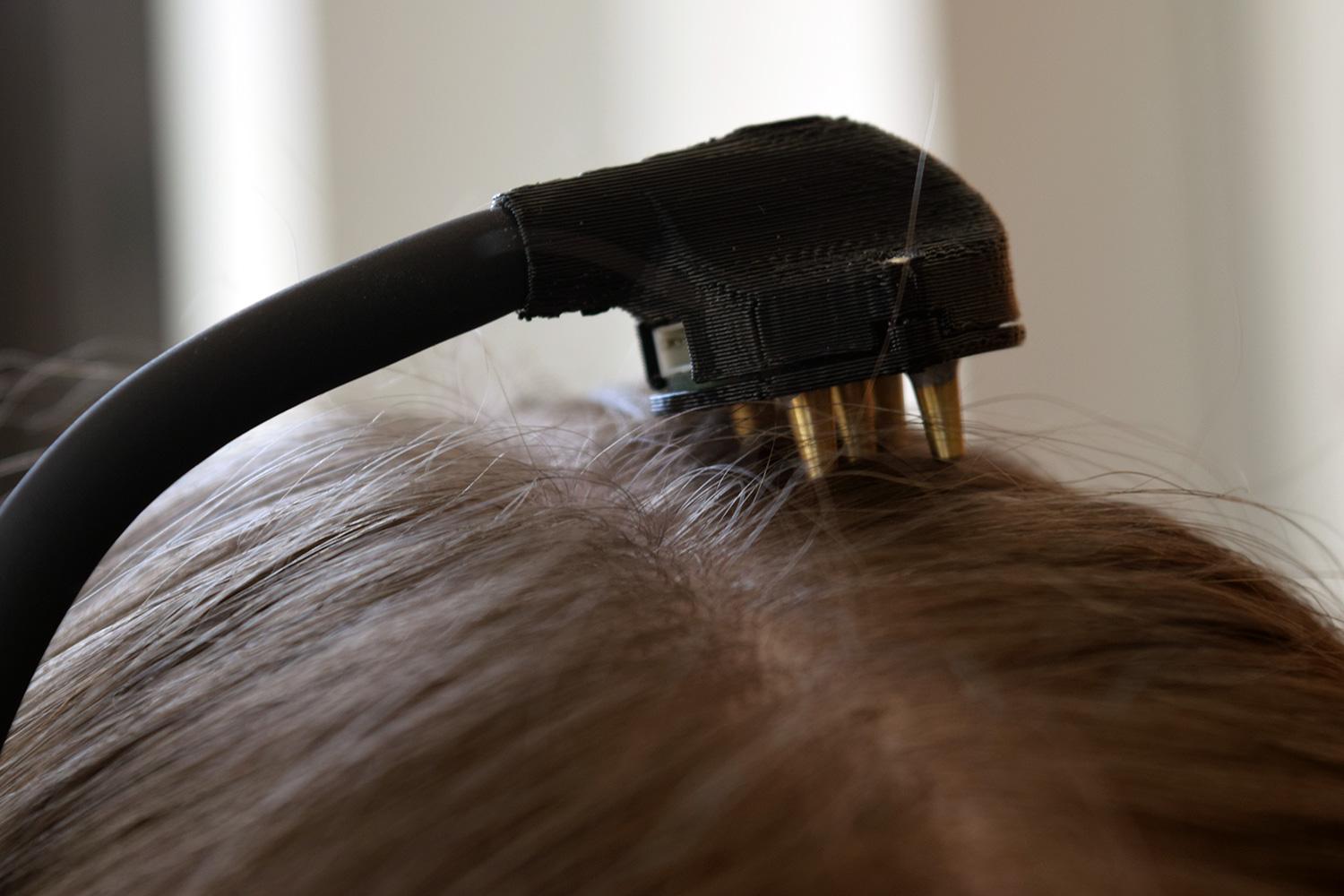Trying to keep the lenses clear felt like a mission, and I really wanted to accomplish the goal. Those who are truly determined to train their brains would probably do well with Narbis, but it needs more refinement to appeal to those with less motivation.
Some days it’s just so hard to concentrate. Life’s full of distractions, and our multi-tasking culture rarely stops to fully focus in on the task at hand. Wouldn’t it be great if there was a device that could train your brain to think better, focus faster, and get more done? Well, thanks to Dr. Domenic Greco, a neurofeedback scientist; his wife, Lindsay Greco; and their son, Devon, a piece of wearable tech that trains your brain exists, and it’s called Narbis.
Narbis (which is the word ‘brains’ scrambled) is a pair of glasses with electrochromatic shades that sync up with the brain wave data collected by three sensor clusters, which are positioned on top of your head and at the end of either ear piece. These sensors are gold-tipped for greater conductivity, and must make good contact with your skin to accurately measure your brain activity. If you’re focused, the lenses will be clear, but if you’re daydreaming or losing concentration, they’ll go dark. The goal is to keep those lenses clear, and it’s way harder than you’d think.
Hands on video
Train your brain to focus at will
We tried out an early prototype of Narbis that was shown to us by its creator, Devon Greco, who is the son of the neurofeedback specialist, Domenic Greco, who started the project to help others after he was diagnosed with Lou Gehrig’s disease, also known as ALS. The glasses could be used by those with Attention Deficit Disorder or autism, as well as normal folks who just want to train their brain to focus at will.
Narbis comes with five training programs that are designed to help you improve these key areas of brain activity: Focus, Performance, Sleep, Calm, and Mood. Depending on what you’re trying to achieve, the glasses will turn clear as you increase a specific kind of brain activity.
We tried the focus test first, which was difficult to do during an interview. We each carefully placed the 3D-printed prototype on our heads and made sure the gold-plated sensors were touching our skin and not our hair. Once they were on, we powered the test up by pressing a single button on the Bluetooth armband, which amplifies your brain signals and translates the data over to an app on your tablet.
Right away, a soft, violet-blue light started to weigh down our eyes. Willing the mind to focus was tough, at first, but slowly, we managed to lift that heavy violet shade, and the world became clear again. Of course, as soon as we lost focus, the violet shade started to lower itself yet again.
Even if you don’t do it everyday, once you’ve learned how to do it, you’ll always be able to do it.
My eyelids felt as though they were lifting weights, but it was all in my head. I felt compelled to say, “Up!” or “Open!” out loud to make the lenses turn clear, but all that was needed was the thought — not the words. It was easier to focus while speaking, but whenever my mind wandered off to my next thought or question, the lenses would slip back into violet. I tried reading with them on as well, but it’s somewhat hard to concentrate on text in the middle of an interview, so the shades darkened.
It was interesting how responsive the lenses were and how quickly they reacted to the brain activity going on. Trying to keep the lenses clear felt like a mission, and I really wanted to accomplish the goal. Those who are truly determined to train their brains would probably do well with Narbis as it is now, but we agreed that most would probably prefer if the idea were gamified — It would certainly make it more fun to practice every day.
The science behind Narbis
Narbis is based on years of research that show that neurofeedback can improve neuroplasticity, which is the brain’s ability to learn and adapt to new circumstances. Neurofeedback training rewards the user when his or her brain patterns line up with the desired level of awareness, and penalizes the user when their brain’s not doing the right thing.
Training your brain now and then has been scientifically shown to improve your brain’s ability to form new connections between brain cells, which in turn, help you remember things better, learn more quickly, and pay attention more fully.
The makers of Narbis envision the wearable being used daily for about 20-30 minutes during some simple task like reading. After a month or so of training, your brain should be in tip-top shape. Of course, the software will continue to challenge you with more complex tasks as your skills improve.
Even if you stop training forever once you’ve met your goals, the new connections will stay in place, and you’ll be able to concentrate at will, we’re told. Greco describes it as being similar to riding a bike — Even if you don’t do it everyday, once you’ve learned how to do it, you’ll always be able to do it.
Narbis aims to start shipping this holiday season
Even though the Narbis Kickstarter campaign failed to reach its goal, its creators will still bring the brain-training glasses to customers.
“We’ve learned a great deal from the Kickstarter campaign,” Lindsay Greco told us. “Since it ended, we’ve been inundated with emails asking, ‘When will I be able to buy it?'”
The goal is to keep those lenses clear, and it’s way harder than you’d think.
Lindsay says that thanks to investors who’ve proven to be “very excited” about the project, Narbis should still ship to the first round of supporters around the holidays this year. The company’s new ship date goal is actually very close to the one it initially set on Kickstarter.
“We have too much invested in this and too much interest to let Narbis go,” Lindsay said. “We had an amazing experience at [a recent] conference — People were lining up to try Narbis.”
The company is currently nailing down manufacturers to produce the components for the glasses and hopes to lower the cost of Narbis by around $75, bring the total to about $225. Soon, you, too, could learn how to master your brainpower with Narbis.
Highs
- Responds quickly to brain activity
- Could help those with attention problems
- Training sessions are short
Lows
- Only a prototype
- The app is very basic
